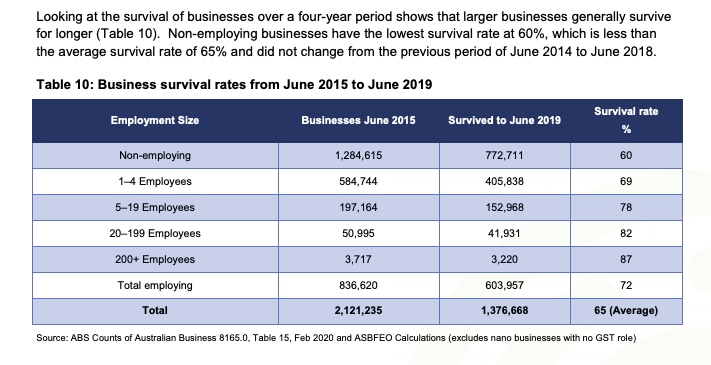Can a business survive without marketing?
- Last Updated : June 12, 2023
- 12.2K Views
- 5 Min Read

Assume that you've recently opened a home decor store in Ashfield. You have some of the best-designed products in the market, the items are priced lower than your competitors, and you're ready to deliver them free of charge to any customer who lives in Sydney. It's a fantastic deal that nobody would want to miss, and yet, you aren't making sales.
The best sales tactics in the world will fail if your potential customers don't know that your business exists. Unless you make people aware of what value you bring to them, it will take a lot more work (and in some cases, luck) for customers to find you. This is why marketing is crucial—you need to spread the word! The more effectively you promote your product or service, the more people will become aware of it and the better your chances are of turning them into customers.
For years, marketing has helped organisations build brand awareness. This awareness is how people remember a brand at the exact moment they need a certain product or service. That's why even some of the most successful brands, like Apple, Coco-Cola, and Amazon, still spend incredible sums of money every year on marketing activities that grab people's attention.
What happens when you don't market your business
You may wonder why you should struggle to promote your business when it's already performing well through word-of-mouth and walk-ins. If a popular brand like Zara is still successful despite not relying much on marketing, why can't your organisation follow that model?
First, let's revisit the same example of owning a home decor store. In such a scenario, the only hope for your business to survive is for people in the neighbourhood to come across your store and start buying from you. Even if positive word-of-mouth can help bring in more customers, you are still drastically limiting your reach without marketing. This keeps your business inside a bubble. You may have a steady stream of customers, but there are a lot of potential customers you might be missing out on. Tapping into that market also opens your organisation up to more feedback, helping you to improve your offers over time.
Even if Zara doesn't rely much on promotional marketing or advertising, they haven't entirely given up on it. They regularly keep their social media feeds updated because they understand the importance of staying relevant and being in touch with their customers. Not to mention that they are now a very established business. While their concepts may be worth exploring, following their exact example as a growing SMB in today's market may not work out.
Ecommerce has become a competitive frontier in recent years, and marketing becomes even more imperative when your organisation is run entirely online. In an era where digital transformation is taking the world by a storm, it's easier for your business to fade into the background without the appropriate advertising. One reason is that it's harder for a customer to form a relationship with an ecommerce brand without it. If they see a competitor has a higher Google ranking or a sponsorship from their favourite YouTuber, they will be more likely to choose their product over yours.
Importance of marketing
Let’s go over a few reasons why marketing is essential for your small business.
It brings in new customers
This is the most obvious advantage of marketing. Missing out on potential customers is a huge setback for small businesses. No matter how great your sales strategy is, you need customers to pitch to in the first place. From billboard advertisements and cold-calling to email and social media promotion, marketing opens a world of opportunities to find more prospects for your business.
To avoid being replaced
Nowadays, customers have a plethora of choices when it comes to purchasing a product or service. Unless you are the only organisation that can provide what they want, they may have no compulsion to do business with you. It's like what we mentioned before with the brand relationship: when you don't make an attempt to catch people's attention, your competitors will. Marketing often plays a role in why a particular brand stays ahead or falls behind.
To get to know your customers
Marketing will help you gain a better understanding of who your real target audience is and what they expect from your business. With enough trial and error in your marketing practices, you'll be able to figure out what really works to draw the right customers in. That way, you can avoid losing money and time on resources or people who don't add any value to your business.
It builds trust
Here's a hypothetical question: if you had the choice, would you buy a product from a business with no online presence, or would you choose a brand that actively engages with people on social media?
A report by Yellow surveyed 2,000 Australian consumers and businesses, and more than half of the respondents said they are more likely to trust a brand that creates engaging content on social media. Marketing gives your brand a voice. Your presence can give people confidence that they won't be left in the dark even if they encounter a problem with your product. By promoting effectively, you give people a reason to choose your business even if you're relatively new in the market.
Pave your own path
According to the Small Business Counts report published in 2020 by the Australian Small Business and Family Enterprise Ombudsman, only 64% of Australian businesses last longer than four years. This is worrying because small businesses already have a significantly lower survival rate compared to larger corporations.

Without a strong marketing strategy, your small business may not progress as successfully as you want it to. And by the time you gather a decent customer base, other businesses with a solid marketing plan will be miles ahead of you. Thus, marketing may be the deciding factor for securing a future for your small business.
Sure, we agree that promoting yourself isn't easy, and at times even the biggest brands can get advertising wrong. But it's important to keep in mind that every business is different, and there isn't any 100% foolproof strategy for sales to flood in to your business. Marketing is a constant process of learning what customers want and finding what strategy actually works for achieving your business' goals. It isn't a remedial measure you only look to when things aren't going well or when you want to temporarily boost your engagement. It requires consistent effort to nourish and grow your business.
Further reading: Developing a marketing strategy—the 7Ps of the marketing mix.


